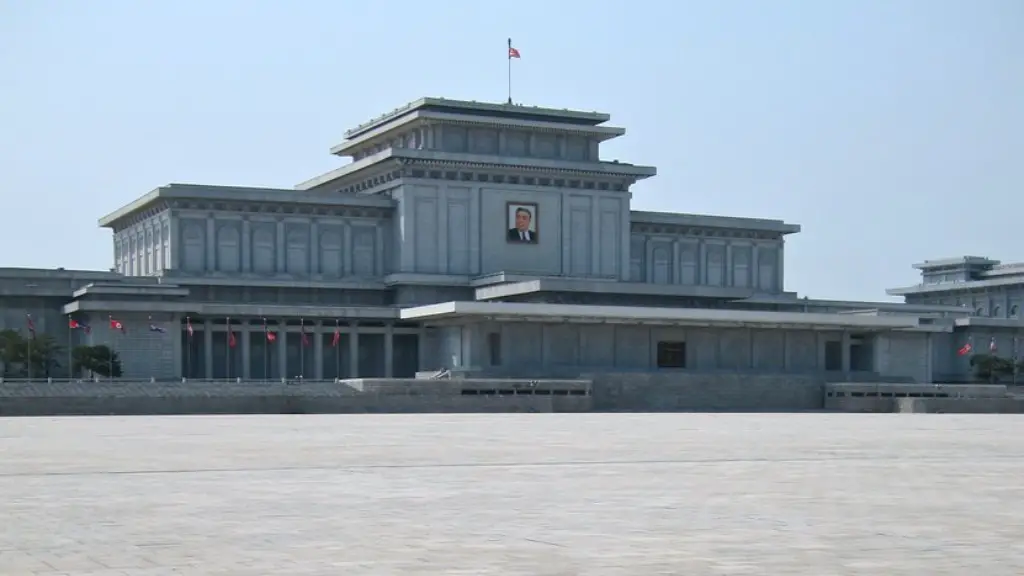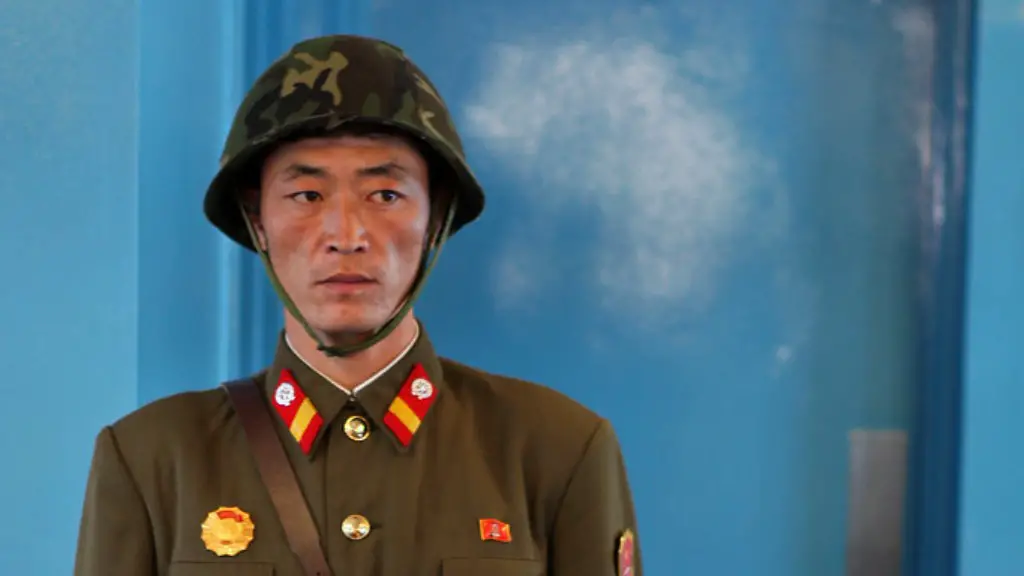North Korea and Nuclear Weapons: An Unclear Future
Given the high tensions between the United States, South Korea, and North Korea, the question of whether or not the North Korean regime would use nuclear weapons has become a major concern. North Korea has a long history of threatening its neighbors with nuclear attack, yet the reality is much more complex. In order to better understand the potential for North Korea to use nuclear weapons, it is important to look at their history, their motivations, and the risks involved.
Initially, North Korea began developing nuclear capabilities in the late 1950s. In 1985, the country joined the international Non-Proliferation Treaty (NPT) which banned further development. But in 2003, North Korea declared it was pulling from the treaty, and in 2006 conducted its first nuclear test. Since then, the country has advanced nuclear capabilities and including nuclear capable missiles.
The primary motivations that drive North Korea’s aggressive actions remain unclear. It is notable that North Korea feels a deep sense of insecurity from past history, such as the Korean War, as well as its current events. Additionally, the North Korean regime has used its nuclear capabilities to maintain power, by providing a sense safety to the population and act as a deterrent to possible interventions or invasions.
Despite these security benefits, North Korea’s nuclear capabilities also bring risks. The biggest risk is that North Korea could escalate their threatening rhetoric into potential action. North Korea has continuously engaged in hostile military provocations, testing missiles and potentially placing nuclear payloads with long-range capabilities. If North Korea were to actually use its nuclear weapons, it could lead to catastrophic consequences, reaching regions far beyond the Korean Peninsula.
To mitigate this risk, it is important for other state actors, particularly the United States and South Korea, to pursue diplomatic channels to maintain dialogue and cooperation with the North Korean government. In this sense, diplomatic and economic pressure can be used to bring about nuclear disarmament and promote openness to more constructive dialogue. At the same time, international sanctions need to be maintained in order to ensure that North Korea does not become a greater military risk to its neighbors.
Continuing Uncertainty
Overall, much uncertainty surrounds North Korea’s nuclear capabilities and intentions. The reality is that North Korea will likely remain a nuclear-capable state in the near-term, albeit one that is constrained by sanctions and international limitations. Despite the risks, North Korea’s nuclear capabilities remain confined and currently do not pose a significant risk to global peace.
That said, North Korea’s current trajectory makes it difficult to predict the potential for nuclear weapon use, either against its own citizens or against neighboring nations. In North Korea’s eyes, nuclear weapons help the regime stay in power and at the same time provide safety and insulation from outside forces. Therefore, North Korea is unlikely to give up these weapons, at least in the near term.
At the same time, however, the realization of catastrophic risks associated with nuclear weapon use is a strong deterrent for any leader who would consider using them. Moreover, the global community is fairly united in preventing the use of nuclear weapons, and thus it would be difficult for the North Korean regime to justify such a move.
Practical Solutions for the Future
Ultimately, the hope is for North Korea to develop positive relations with its neighbors. Until then, it is important for the international community to maintain its pressure on the North Korean regime, while also seeking diplomatic and economic engagement with the country. Specific agreements and policy decisions, such as the recent denuclearization agreement between Pyongyang and Seoul, signal a positive step towards the peaceful resolution of North Korean nuclear issues.
Moreover, the US, South Korea, and the global community should continue to advocate for the human rights of North Korean citizens, many of whom suffer in poverty and under repressive conditions. These diplomatic initiatives stress the importance of dialogue to bring about constructive and peaceful resolution to North Korean affairs.
Gaining Global Momentum
The difficulty remains in sustaining the global momentum and diplomatic pressure necessary to bring about a politically favorable outcome. On one hand, the risk of nuclear weapon usage is ever present and time is of the essence. On the other hand, allowing North Korea to continue unchecked with its nuclear aspirations could facilitate further militarization and destabilize the region further.
Presently, the United Nations and other global actors are actively attempting to engage North Korea in productive dialogue. For example, the United Nations Special Rapporteur on the Situation of Human Rights in North Korea discussed the importance of “fulfilling the human rights for all” in a 2021 statement. The goal is to reach a sustainable agreement that allows all actors in the region to progress and protect both their country’s security.
Making Positive Progress
The progress that may result from ongoing dialogue should also lead to the dismantling of North Korea’s nuclear weapons. To this end, the international actor’s focus should be directed towards strengthening diplomatic ties and communication between North Korea and the rest of the world. A unified approach among all global actors is needed to ensure that the necessary mechanisms are in place to monitor North Korea’s nuclear threats.
At the same time, the US and South Korea should continue to focus on military exercises and drills that help build trust in each other’s capabilities and intentions. This is particularly important as the South Korean government is often seen as a trusted mediator between North Korea and the US.
Promoting International Human Rights
Ultimately, the global community should continue to engage with North Korea in a respectful, patient, and constructive fashion. Additionally, the international community should focus on the human rights of North Koreans, and the dire living conditions within the country. Without the necessary international assistance and global pressure, it is unlikely that the North Korean regime will make much progress in improving its human rights record.
Achieving a balanced and effective strategy for dealing with the North Korean nuclear threat will be difficult. Yet, it is essential for the international community, led by the US and South Korea, to maintain and build upon ongoing diplomatic initiatives and economic sanctions in order to promote peaceful dialogue and global security.




